Published
- 05:00 am
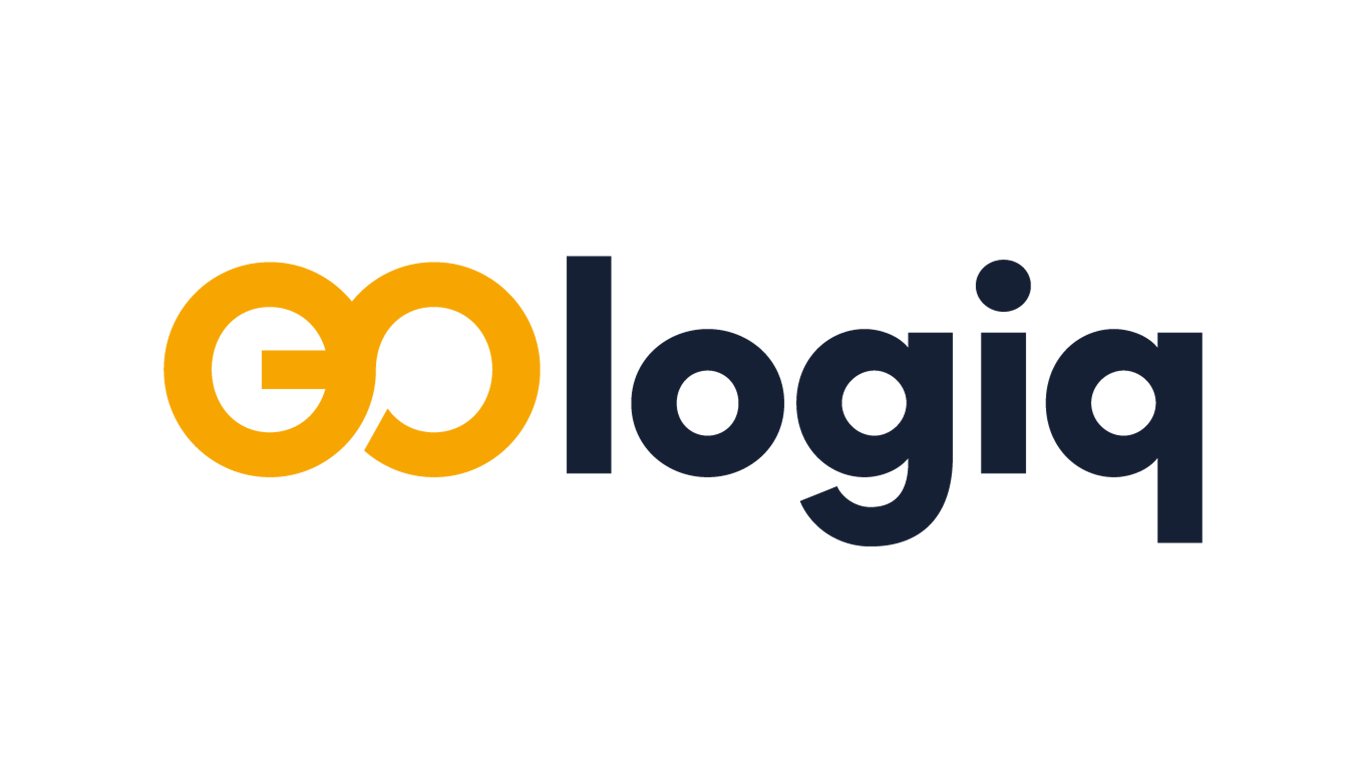
GoLogiq, Inc., a U.S.-based global provider of fintech and consumer data analytics, has entered into a non-binding letter of intent to acquire Australian-based Shape Super Australia Pty Ltd (Shape), a prominent manager and administrator of self-managed super funds (SMSFs).
The acquisition will expand the services offered by the company’s subsidiary, GENFI Financial Group, and enable its accountants and advisors to take greater advantage of the specialist management and administration services offered by Shape.
Shape currently administers more than 1,500 SMSFs and is on track to increase this number to more than 2,000 by year end. Shape’s assets under administration presently total more than AU$1.6 billion, which is anticipated to grow to more than AU$2.0 billion by year end, depending primarily on movements in asset valuations.
Now in its fifth year of operation, the Shape team collectively possesses more than a century of experience in finance, wealth management and accounting. They provide the full spectrum of SMSF administration, including financial reporting, bookkeeping, tax accounting and audit facilitation, as required by the superannuation regulations that govern SMSFs in Australia.
Shape serves three primary market sectors: accountants (outsourced B2B service model), financial advisors (recommended/referred as a provider of choice), and SMSF trustees directly (sophisticated, self-directed investors).
The acquisition of Shape will supplement the benefits that GoLogiq expects its Australian financial services group provides by delivering a more homogeneous approach to services offered, thereby resulting in more optimal outcomes for clients.
“We look forward to working with the Shape team to integrate their business-to-business SMSF services into our fintech ecosystem,” stated GoLogiq interim CEO Brent Suen. “The management team has shown themselves to be experts in helping accountants and financial advisers with SMSF services.”
“These new SMSF-related service capabilities allow us to leverage and expand our resources and capabilities to accountants, qualified investors and self-managed super funds in Australia,” added Suen. “We believe our growing Fintech ecosystem can help Shape expand their reach and exceed their objectives.”
Under the terms of the letter of intent, GoLogiq will acquire 100% of Shape and engage in a management agreement with senior executive staff to ensure a continuity of management and service delivery. Final terms of the proposed acquisition are currently being negotiated, and it is envisaged that the transaction will incorporate a consideration mostly comprised of GoLogiq common shares. The transaction is expected to close in the second quarter of 2023.
While GoLogiq expects the transaction to be completed as anticipated, a definitive agreement has yet to be signed and no assurances can be given it will be executed or the transaction will be completed as described. When such a definitive agreement would be mutually signed, the details would be made available in a Form 8-K to be filed with U.S. Securities and Exchange Commission on www.sec.gov as well as on the investor section of GoLogiq’s website.
Related News
- 08:00 am
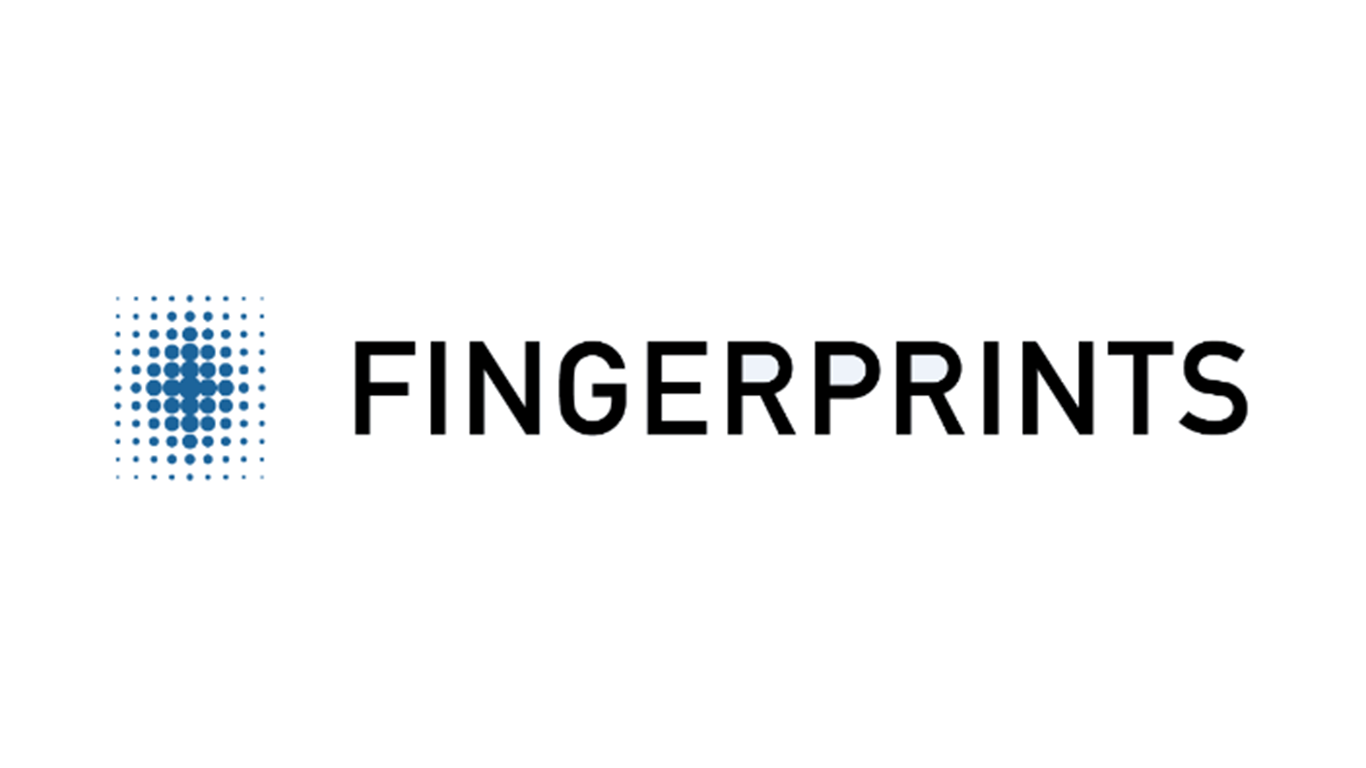
World-leading biometrics company, Fingerprint Cards AB (Fingerprints™), has announced it has now shipped more than one million of its T-Shape FPC1300 series flagship products to customers in the biometric payment card industry.
Consumer demand for more convenient ways to purchase in-store goods has already led to contactless becoming the world’s most popular in-store payment method, but security is still critical when cards are lost or stolen. Because of this, fingerprint recognition is growing quickly as a preferred authentication method for payment cards as it maintains the speed and convenience of contactless while increasing security.
In 2022 alone, the global biometrics market was worth around $33.2 billion as more industries – from banking to retail and access control – realized its true value. That figure is anticipated to grow nearly three times by 2028, totaling $87.4 billion.
Globally recognized as the market leader in the development of biometric solutions for different applications, Fingerprints’ products play a crucial role in safeguarding electronic payments. The sale of over one million fingerprint sensor modules for biometric payment cards further evidences its leading position in the market.
“We are thrilled to have shipped over one million modules to the biometric payment card industry. I believe this is testament to the quality, reliability, and performance of our products, and it demonstrates Fingerprints’ commitment to delivering cutting-edge solutions that are tailored to meet the unique needs of each market,” comments Michel Roig, President of Payment and Access for Fingerprints.
“Reaching this milestone is also a reflection of the strength of our collaborations with customers and partners through the value chain, and it reinforces our position as the leading provider of biometric solutions for payment cards.
“I am confident in our ability to defend and further strengthen our market position and look forward to continuing to innovate and develop products that enhance the security and convenience of biometric cards.”
The ultra-thin FPC1321 (T1) and FPC1323 (T2) fingerprint sensor modules possess exceptional 3D image quality and ultra-low power consumption that is ideal for contactless use. Additionally, they are optimized for integration into payment cards meaning every transaction can be approved with robust customer authentication while maintaining the speed and convenience of contactless.
Related News
- 09:00 am

Sumsub, a global tech company that provides customizable KYC, KYB and AML solutions for the whole user journey, today published its Complete Guide to Transaction Monitoring to provide a detailed picture of transaction monitoring as an integral part of the verification system. The guide was prepared by Sumsub’s compliance and anti-fraud team in partnership with Pismo, an all-in-one, cloud-native financial services platform covering all core banking and payment processing functionalities.
Transaction monitoring is crucial for companies providing financial services, as it helps them perform risk assessments and detect suspicious activities. This expert guide is intended to show businesses in the fintech, banking, insurance, gambling and e-commerce sectors how to spot transaction fraud, bolster their defenses, ensure full compliance and optimize user conversion rates at the same time.
If businesses don’t monitor transactions, they run the risk of money laundering, fraud and other crimes occurring on their platforms. According to the U.S. Federal Trade Commission, $8.8 billionwas lost on fraud last year, and the United Nations reports that money laundering losses mount up to $1.6 trillion annually. That’s why governments have been toughening their AML regulations. If companies fail to comply, they face heavy fines, reputational damage and even license revocation. For example, in December 2022, Danske Bank was fined over $2 billion for inadequate transaction monitoring capabilities, deficient AML systems and high-risk customers. In the guide, you’ll find a detailed description of the AML legal framework for transaction monitoring in the U.K., U.S. and EU along with respective recordkeeping requirements.
Transaction monitoring is an ongoing process used to spot dubious transfers and transactions made in digital or fiat currencies, and to detect other suspicious customer activities. As a result, it helps businesses stay protected from scams and avoid potentially huge money loss. While transaction monitoring is mandatory for regulated businesses, it is beneficial for other businesses as well if they wish to have an additional layer of protection against financial fraud.
Every industry benefits from transaction monitoring in different ways:
- A gambling or iGaming service can support responsible gaming by easily detecting if a customer is spending more money than declared in their income statement, and a service can curb arbitrage betting by detecting multi-accounters;
- Banks can automatically detect signs of suspicious activity, such as income drastically higher than in the source of funds statement;
- In e-commerce, purchases over AML thresholds and unusual spending patterns should automatically raise alarm bells and be prevented;
- For insurance companies, illegitimate claims and fraud patterns can be detected.
How to build transaction monitoring rules depends on the industry, customer type and many other factors. In the guide, you’ll find recommendations on how to do it, as well as the essentials of any transaction monitoring system and the specific risks associated with insufficient transaction monitoring. Additionally, Sumsub experts have prepared a checklist to guide companies in choosing the best transaction monitoring solution.
“Nowadays it’s getting harder for regulated businesses to survive and grow in conditions of economic recession: they need to keep pass rates high, attract new users and stay protected from fraud—all at the same time. The perfect tool to help businesses keep up with their ambitious plans and avoid scams on the way to growth is transaction monitoring. It is a new must in verification that should come together with KYC and other AML checks. By combining user, business and transaction verification in a single flow, you get a complete picture of user-profiles and can intercept even the most sophisticated fraud attack vectors and patterns, and that provides extra insurance that fraud risks can be reduced,” said Vyacheslav Zholudev, co-founder and CTO of Sumsub.
Related News
- 06:00 am
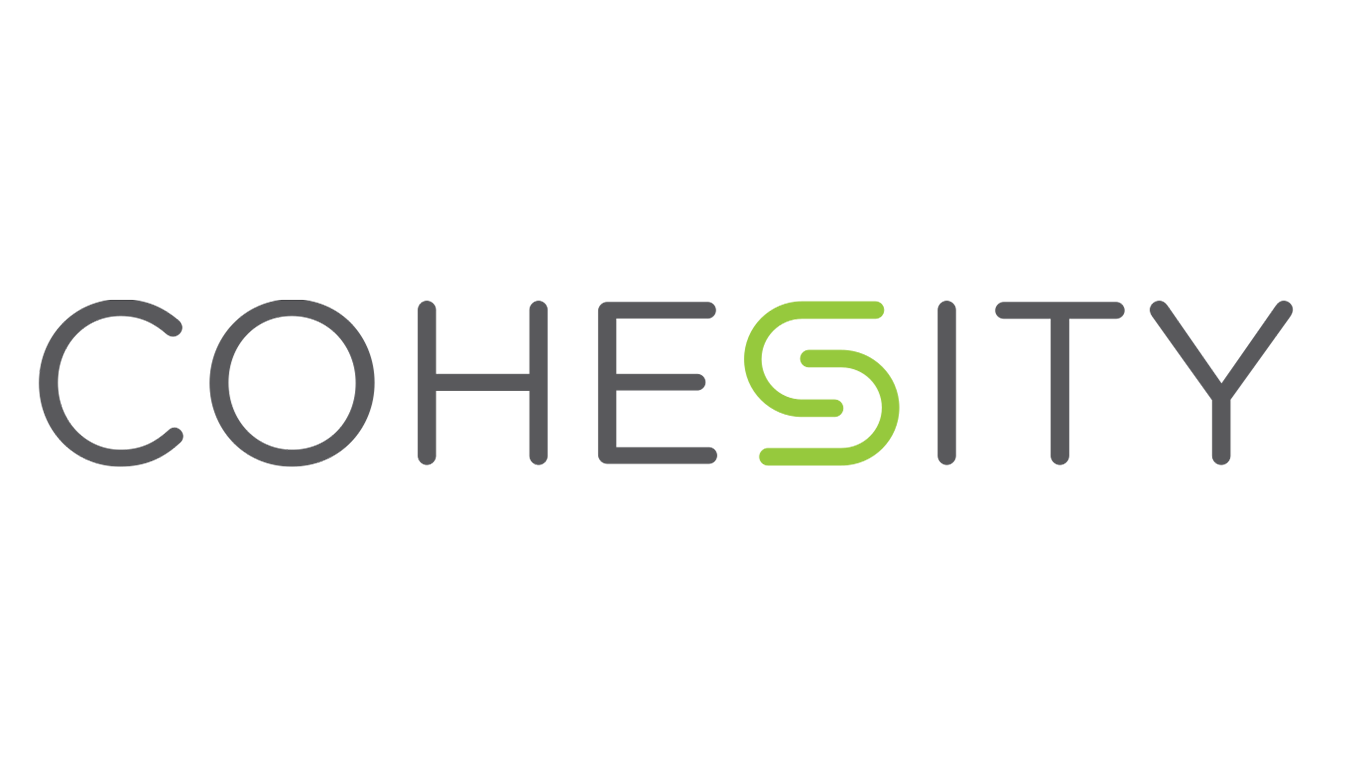
Cohesity today announced an expanded relationship with Microsoft that is focused on helping enterprises globally broaden and harden data security.
There are two major elements to the expanded relationship between Cohesity and Microsoft.
- Cohesity announces integrations that help IT and SecOps leaders defend against cyber threats
- Microsoft Sentinel: Cohesity’s DataProtect backup and recovery solution, both on-premises as well as its backup as a service offering, now integrates with Microsoft Sentinel – the cloud-native security information and event management (SIEM) platform. Through this integration, joint customers can benefit from streamlined access to incident reporting and ransomware alerts.
- Azure AD and Multi-factor Authentication: Azure Active Directory is a standard identity platform for Microsoft customers around the globe. Cohesity provides seamless integration with Azure AD and multi-factor authentication (MFA) to safely and securely manage and access Cohesity products, including Cohesity Data Cloud and Cohesity Cloud Services.
- Microsoft Purview via Cohesity’s Partnership with BigID: Get actionable data intelligence for data discovery, privacy, security, and governance across your Microsoft environment with Cohesity data classification that is powered by BigID. BigID has built integration with Microsoft Purview that joint customers can benefit from.
- Cohesity Cloud Services are now available on Azure, empowering Microsoft customers to easily protect and secure their data across hybrid environments
- Cohesity FortKnox, Cohesity’s popular SaaS cyber vaulting service, provides another layer of protection with predictable data recovery. Live demos and product previews of Cohesity FortKnox on Azure are available now, with general availability planned in the coming months.
- Cohesity DataProtect delivered as a service, an easy-to-use enterprise-grade backup as a service (BaaS) offering, now supports Microsoft 365. Customers can use Cohesity’s BaaS offering, which protects critical SaaS, cloud-native, and on-premises data, to back up their Microsoft 365 data to a data plane hosted on Azure.
Ushering in a New Era in Deriving Value from Data
Cohesity, which is already using AI to help customers detect anomalies that can indicate a cyberattack in play, believes AI can be used in other ways to rapidly analyse vast volumes of data and enable IT and security operations to respond to a security breach -- faster and with improved accuracy.
Today, Cohesity announced that it will put forth its AI-ready data structure that, when combined with OpenAI, will advance generative AI initiatives around threat detection, classification, anomaly detection, and more. To hear more about the impact AI can have on data security and management, Cohesity’s expanded relationship with Microsoft, and opportunities for customers to secure, protect, and derive value from data, watch this special edition of Spotlight on Security on April 11 which will feature key Microsoft and Cohesity executives.
“Cohesity is integrating with Microsoft’s broad platforms across security, cloud and AI - all in order to help joint customers secure and protect their data against escalating cyberattacks,” said Sanjay Poonen, CEO and president, Cohesity. “This expanded collaboration will make it simple for thousands of Microsoft customers and ecosystem partners to access Cohesity’s award-winning platform, including its differentiated benefits of scalability, simplicity and security, in hybrid-cloud or multicloud scenarios.”
“We utilise both Cohesity and Microsoft solutions today and are excited about this expanded focus on advancing security, utilising cloud innovations to promote cyber resilience, and getting more valuable insights from data,” said Niall Townley, backup administrator, Community Health Plan of Washington. “As organisations like ours continue to accelerate the move to a hybrid and multicloud world, it's great that we can also continue to manage data simply and securely, wherever it’s located, via the Cohesity Data Cloud platform. Together, all these benefits help us optimise the cloud while also mitigating risk from cyber threats.”
With so many organisations expanding their data footprints into hybrid and multicloud environments, attack vulnerabilities are increasing, and data security and protection is becoming more complex. Cohesity seeks to meet customers where they are, whether on-premises or across multiple cloud providers,” said Phil Goodwin, research vice president, IDC. “Cohesity strives to help customers get more value from data through better data logistics, a key part of which is data security and protection. We think integrating with Microsoft Azure will help Cohesity and its customers to stay a step ahead of cyber criminals through more intelligent security now and with other interesting use cases to follow.”
Related News
- 07:00 am
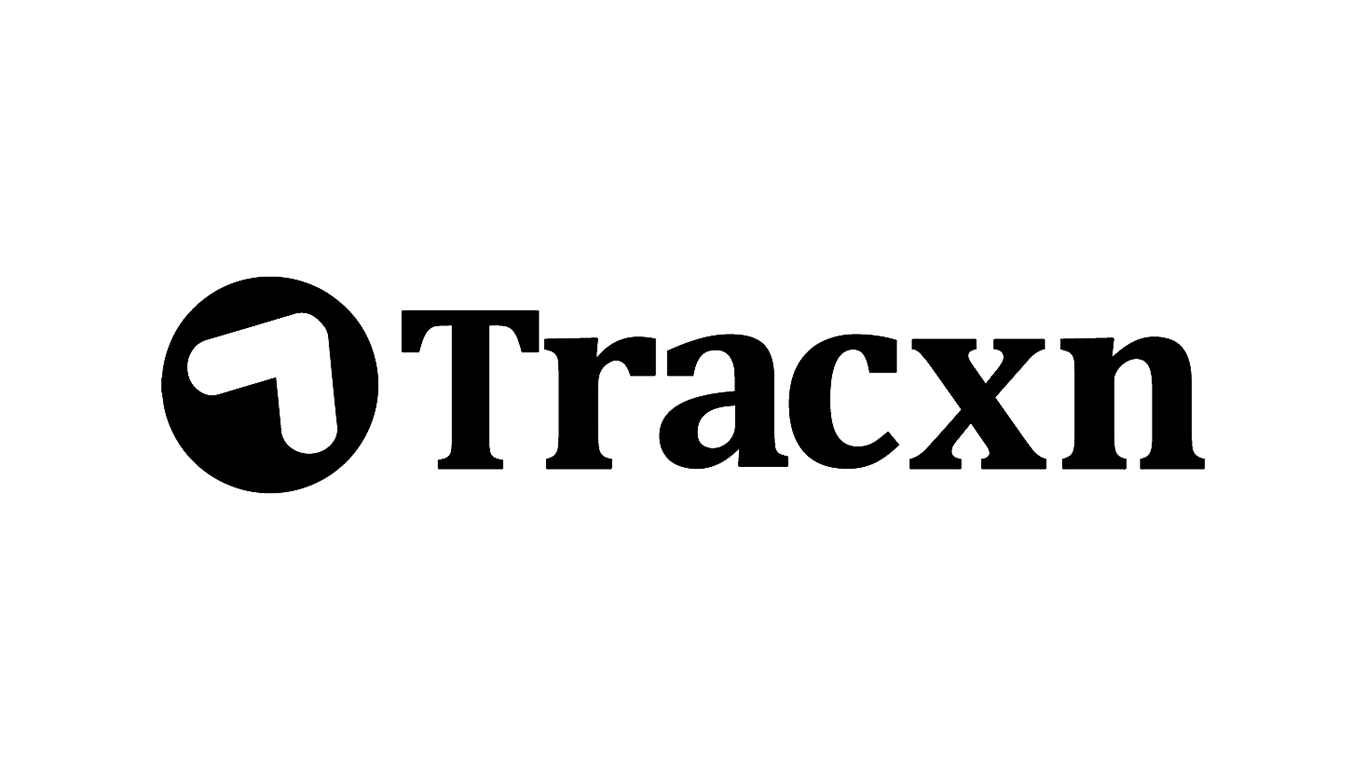
Tracxn, a leading global SaaS-based market intelligence platform, has released its Geo Quarterly FinTech US Report - 2023. The report, based on Tracxn’s extensive database, provides insights into the US FinTech space.
The US is home to more than 30,000 FinTech startups, making it the largest startup ecosystem globally in the FinTech space. The total funds raised in Q1 2023 by the US FinTech startups accounted for more than 65% of the funds raised in the FinTech space globally.
US FinTech startups raised a total of $8.8 billion in Q1 2023, which is 25% lower than Q1 2022 and a 173% rise from Q4 2022. This is primarily due to a sharp jump of 414% in late-stage funding from $1.4 billion in Q4 of 2022 to $7.2 billion in Q1 2023, and an increase of 10% compared to Q1 of 2022. The majority of the funding in this stage was raised by digital payments company Stripe, which alone raised $6.5 billion in a Series I round in January 2023.
Early-stage funding was the most impacted, decreasing 70% this quarter when compared with Q1 2022, and falling 7% from Q4 2022. This sector witnessed seed-stage investments worth $294 million in Q1 2023, 56% lower than the amount raised in Q1 2022, and 26% lower than the corresponding quarter last year. Due to San Francisco-based Stripe's funding round, $7.25 billion was raised in January 2023 alone, a rise of 75% from January 2022.
Payments, Investment Tech, and Banking Tech were the top-performing segments in Q1 2023, with companies in the Payments space accounting for more than 75% of the total funds raised in the overall sector.
It was an uneventful quarter for the US FinTech space in terms of IPOs and Unicorns. NFT Gaming Company, a platform offering NFT-based play-to-earn gaming economy, was the only IPO observed in Q1 2023. Liquidity Group, a business loans platform was the only new entrant to the Unicorn club in Q1 of 2023, compared with 18 Unicorns in Q1 of 2022.
51 acquisitions took place in Q1 2023, a small change from 58 acquisitions in Q4 of 2022. Duck Creek was acquired by Vista Equity Partners at an acquisition price of $3 billion, and Power was acquired by Marqeta for $223 million.
Y Combinator, Andreessen Horowitz and Techstars are the most active investors in the US FinTech startup ecosystem. The top seed-stage investors in the US are Y Combinator, Susa Ventures and Calm/Storm, while the top early-stage investors are Commerce Ventures, Correlation Ventures and AME Cloud Ventures.
Among US cities, FinTech startups in San Francisco attracted the maximum investments, worth $7.2 billion in the first quarter of 2023. This is followed by companies in New York City ($413 million), Minneapolis ($179 million) and Los Angeles ($114 million).
A number of established FinTech companies have come forward to assist smaller startups affected by the banking crisis. For instance, AngelList has launched new products to help startups affected by the banking crisis to access emergency capital. Such measures are expected to stabilize and ease the situation for startups.
Related News

Kush Shah
Product Lead at Bottomline
The UK’s cost of living crisis continues to crack on, straining the wallets and bank accounts of consumers and creating a tough market for goods and services. see more
- 08:00 am
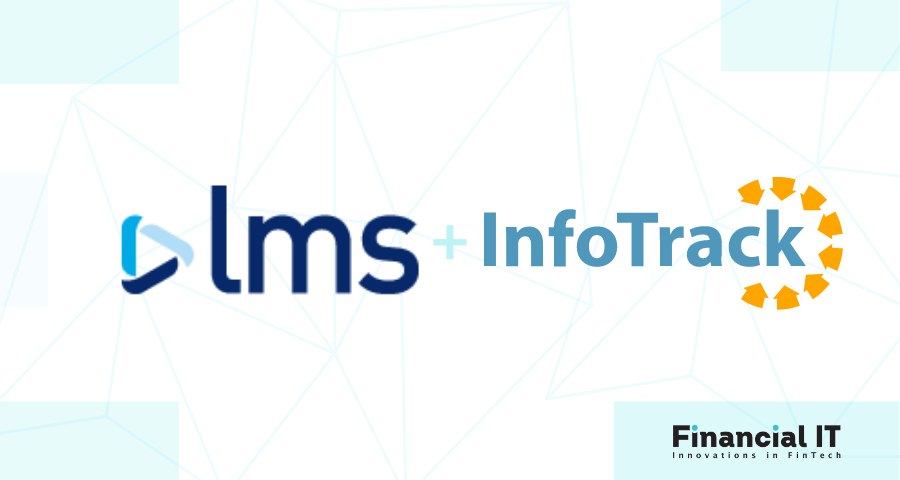
LMS, the UK’s leading conveyancer and panel management specialist, today announces that InfoTrack, a pioneering digital conveyancing provider, has integrated with Secure Link to facilitate access to the service for all its clients and deliver an enhanced user experience.
LMS Secure Link is an innovative messaging service, launched last year to streamline the conveyancing process and improve case query turnaround times. The service enables law firms to raise common post offer queries with the lender in a streamlined way to help firms achieve quicker responses and avoid delays in the conveyancing process.
The integration with InfoTrack will allow its clients to request redemption statements via Secure Link through their InfoTrack portal, without the need to contact any additional stakeholders. The statements will automatically appear in the user’s case management system, delivering a much more seamless, enhanced experience, with no need for access to multiple platforms outside of InfoTrack.
Having already seen the success of the platform, which saw 68% of post-offer queries answered immediately, the integration will ensure that lenders and law firms will get the answers they need when they need them.
The move is a further demonstration of LMS and InfoTrack’s ongoing collaboration and commitment to creating efficiencies in the conveyancing process as they continue to work closely together to ensure that problems currently experienced by all stakeholders are addressed in a timely, appropriate and innovative way with technology at the centre. The integration also means that InfoTrack customers will be among the first to benefit from LMS’ continual development and enhancement of the Secure Link platform.
Commenting on the news, Travis Scholes, Commercial Director at LMS said:
“Secure Link was born out of a need to drive efficiencies in the conveyancing process to help lenders and law firms alike. It has had a big impact so far but we’re always looking for ways that we can expand this further still and improve the process for all stakeholders.
The integration with InfoTrack does just that, providing access to Secure Link to its clients and allowing them a single point of access. We love working with the InfoTrack team – their vision is very much aligned with our own and our work together to drive true collaboration has been recognised at this year’s British Conveyancing Awards. We can’t thank Scott and the team enough for their ongoing support and we’re excited to continue to innovate together.”
Scott Bozinis, CEO at InfoTrack UK, adds:
“In much the same way as LMS, our main focus will always be how we can enhance user experience across the board. Secure Link has had an enormous impact since it launched – a true testament to the work of the LMS team - and this integration felt like a natural step to improve the experience of our clients. With one point of access, it really does benefit everyone, and today’s announcement is evidence of the dedication to the work we’re doing with LMS and the values we share in delivering the best possible outcomes for stakeholders. We love working with Trav and the team to bring technology to the forefront and are very much looking forward to bringing even more exciting and collaborative innovations to the market this year. Watch this space!”
Related News
- 08:00 am
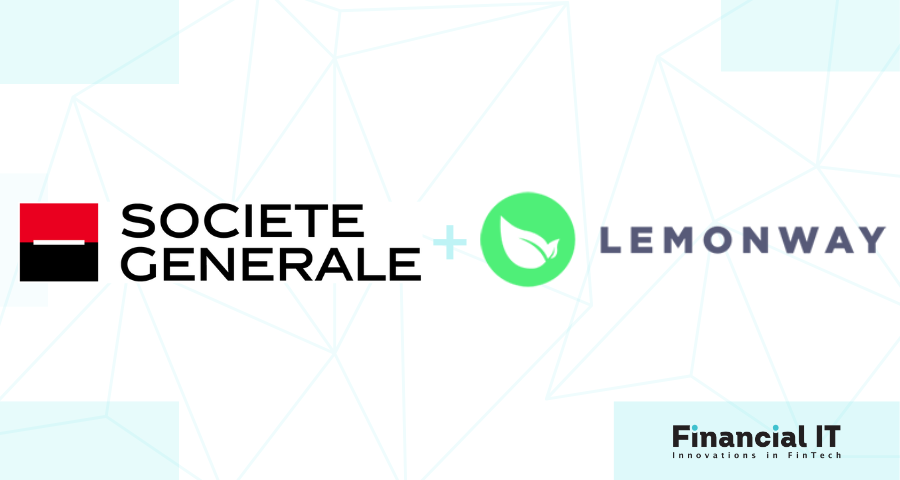
Societe Generale, one of Europe’s leading banking groups, and Lemonway, an ACPR-licensed pan-European payment institution, have signed a commercial partnership to deliver payment services to large corporates in Western Europe, launching B2B marketplaces. With complementary approaches, these two firms have committed to adequately addressing the growing needs of corporates in the booming B2B marketplace sector.
Large corporates are accelerating their digital transformation, which has become vital for their clients and ensuring B2B revenue growth. In this context, launching a B2B marketplace improves the payment experience, supports internationalization, creates value, and enhances the commercialisation and distribution processes of the e-commerce chain.
Societe Generale continues to add value and support their clients in their digital transformation by partnering with Lemonway. As an expert in its segment, Lemonway offers modular and end-to-end solutions for their B2B marketplaces. It includes payment and other strategic services such as customer verification and payment account opening, reconciliation of flows for beneficiaries and performance monitoring. This allows B2B marketplace operators to manage complex transaction flows in compliance with the highest regulatory standards. The technical implementation of the partnership will be effective soon, in eight European countries (France, Germany, Italy, Spain, Belgium, Netherlands, United Kingdom, and Switzerland).
This innovative partnership relies on Lemonway’s professional expertise to manage third-party payments services, combined with the robustness and security of Societe Generale services in cash management.
As the trusted banking partner that supports the growth of large corporates, Societe Generale complements its e-commerce solutions, notably through active partnerships or investments. Lemonway will reinforce its position with large corporates in Western Europe.
"Societe Generale is proud to announce this commercial partnership with Lemonway, whose expertise and tailored approach perfectly fit our DNA. This partnership enables us to support our clients in their digital transformation, offering ever more complete and innovative payment services, in line with the specific needs of large corporates for their B2B marketplaces. It illustrates Societe Generale’s long-standing cooperative approach with fintech companies to provide innovative solutions for our clients.” – explains Alexandre Maymat, Head of Global Transaction and Payment Services at Societe Generale.
“Lemonway is proud to partner with a world-class bank such as Societe Generale. Its large account service experience combined with our third-party payment expertise precisely meets the expectations of this fast-growing market. Together we offer B2B marketplaces a secure, scalable, and compliant payment experience that enables our customers to accelerate their growth” – says Antoine Orsini, Chief Executive Officer of Lemonway.
Related News
- 05:00 am
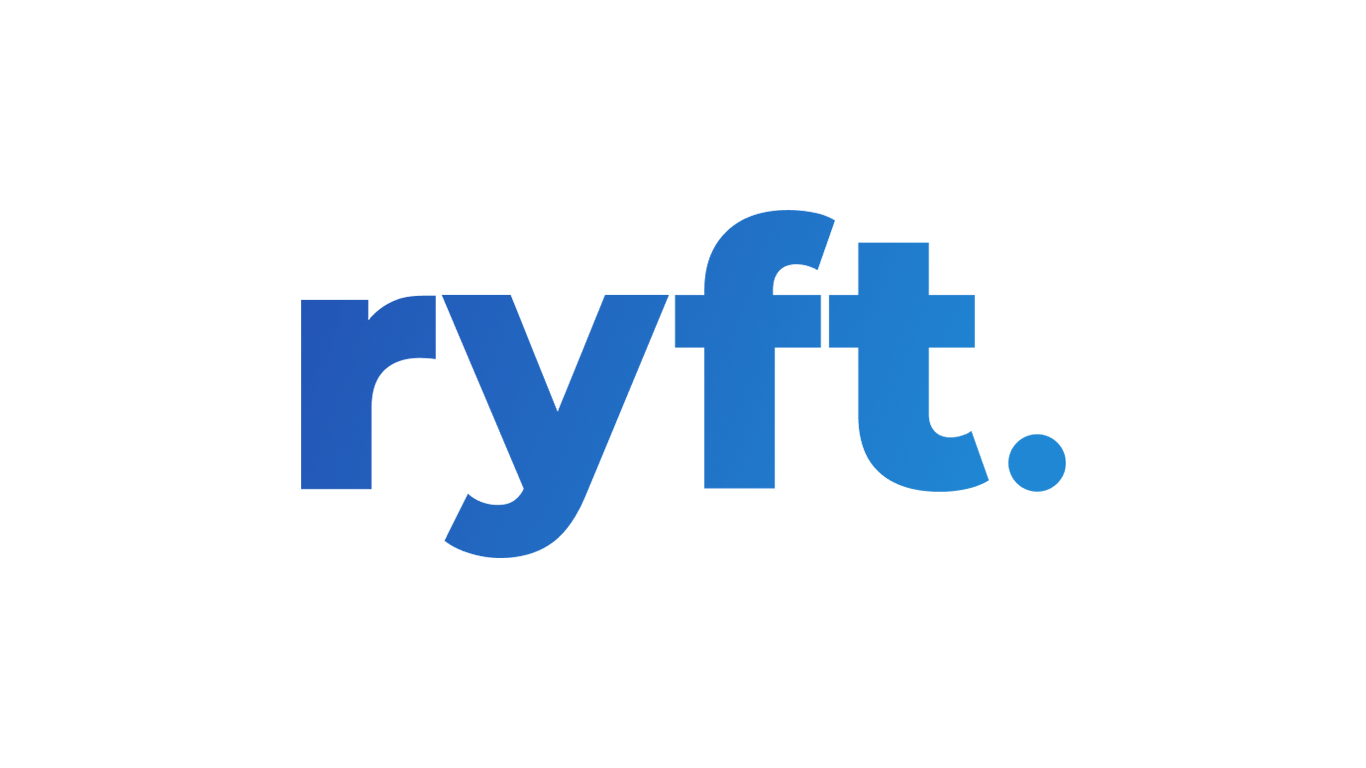
Ryft, the revolutionary PSD2-compliant payments system, has announced its receipt of a UK licence from the Financial Conduct Authority (FCA) following a £1.2 million seed round raise in August last year. The authorisation of the licence opens up opportunities for Ryft to become a regulated payment facilitator with some of the world’s biggest acquirers.
The FCA licence will allow Ryft to expand its in-house compliance team led by the new Head of Compliance and Money Laundering Reporting Officer (MLRO), Grant Campbell. This will allow the business to facilitate more complex payments, enabling B2B digital and marketplace platforms to monetise payments across their technology as well as independently broker relationships with other organisations.
The Ryft solution processes payments and then automatically diverts funds to merchants and sub-merchants the next working day. Think Stripe Connect without the high fees and lengthy payout wait times. The solution is completely PSD2 compliant. Ryft’s end-to-end solution handles everything from accepting online payments, verifying and onboarding merchants, to splitting up the payments however a business wants. This is all done through easy-to-use API documentation to remove complexity and fast-track the development cycle.
The idea for Ryft came from best friends and co-founders Sadra Hosseini and Alex Mackenzie’s first business Butlr, a mobile ordering marketplace app for pubs and bars. They scaled this business up rapidly during the pandemic, reaching over a million customers and 500 active venues at their peak before the platform was acquired. They identified a gap in the market for the profitability of microtransactions and fast payouts and there Ryft was born. Many marketplaces are caught unaware of PSD2 compliance, presenting a unique opportunity to capture market share by presenting a solution that fixes this and takes the administerial headaches away from finance teams.
Ryft solves the current problems in the payment marketplaces of multiple sub merchants resulting in large periods of wasted time and multiple processes across different platforms. Ryft streamlines all of these processes in a singular efficient platform, protecting employees, protecting businesses from FCA fines, ensuring anti-money laundering rules are followed and reducing the associated risks for marketplaces and their onboarding processes.
Sadra Hosseini, CEO and Founder of Ryft: “We are both incredibly proud to have secured our FCA licence after a year and a half. This furthers our ability to provide support to marketplaces and merchants in the industry. Ryft was created to handle everything so your business doesn’t have to.”
Related News
- 07:00 am
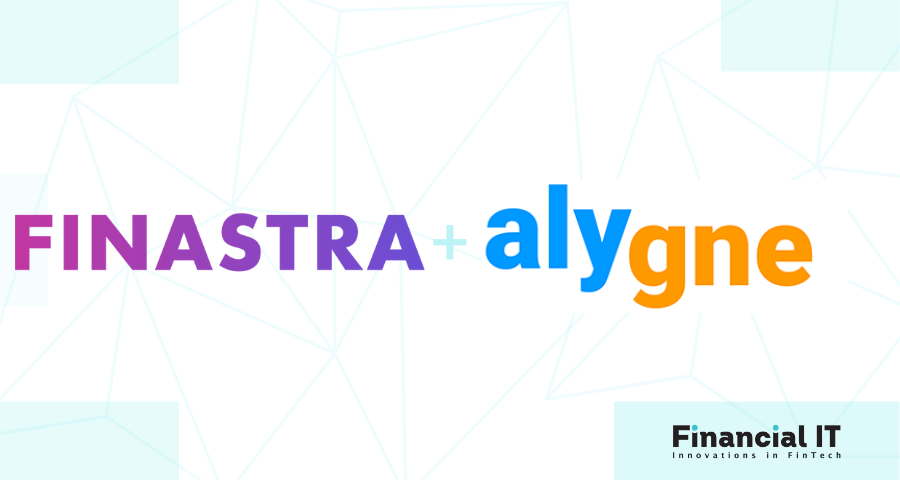
Finastra, a global provider of financial software applications and marketplaces, today announced its partnership with Alygne, a sustainability technology platform that provides tailored ESG alternative data, to help asset managers globally make more informed ESG investments. A new connector seamlessly integrates Alygne's data into Fusion Invest, allowing users to leverage the portfolio management capabilities of the solution to ensure portfolios support their ESG-related values.
“Making investments that coincide with corporate and customer values is front of mind for asset managers, but a lack of access to data and metrics makes this challenging,” said Fabien Féron, Senior Product Manager – Fusion Invest at Finastra. “In addition to using traditional financial metrics to monitor their portfolios, our customers can strengthen their decision-making process by accessing Alygne’s tailored ESG data through our solution. They can easily check the impact of trade simulations for both public and private markets.”
Fusion Invest is an integrated platform that covers the entire investment value chain, delivering portfolio insight and automated processes with a real-time Investment Book of Records and multi-GAAP accounting book of records (IBOR and ABOR). It features advanced analytics, comprehensive asset class coverage and open technology via digital dashboarding and APIs, to help financial institutions deliver higher returns while minimizing operational risks.
Alygne is a sustainability technology platform making ESG-related alternative data accessible and transparent on both private and public companies. It quantifies ESG scores of multiple facets using natural language processing and machine learning to read global news, social posts and corporate announcements. Alygne operates alongside metrics used in global reporting frameworks, such as Sustainable Finance Disclosure Regulation (SFDR) and Sustainability Accounting Standards Board (SASB) standards.
“Through seamless integration with Fusion Invest, fund managers can use our data to make decisions based on financial and extra-financial criteria by adapting quickly to fast-evolving market regulations and conditions,” said Corinne Grillet, CEO at Alygne. “Retail and institutional clients can also use this data to promote ESG capabilities to their end customers. Our collaboration with Finastra combines best-of-breed portfolio management with advanced ESG analytics to support the global agenda of powering value-driven investments.”









